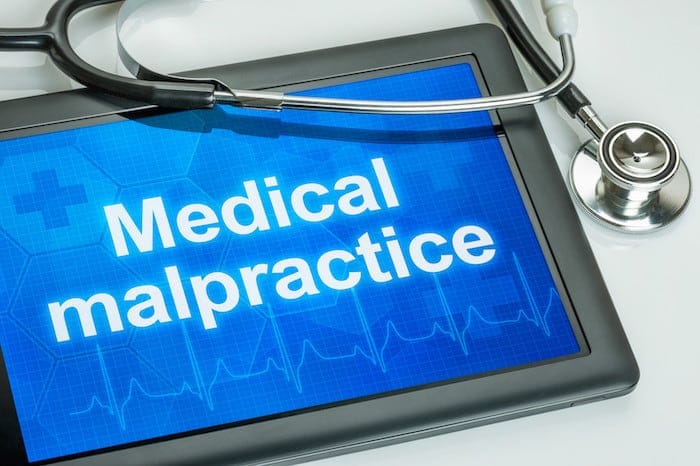
Medical malpractice is the third leading cause of death in the US, accounting for over 250,000 deaths per year, according to Johns Hopkins. However, other studies have reported deaths from malpractice to be well into the 400 thousands. This vast discrepancy is accounted for by the fact that human and system miscalculations aren’t often recorded on death certificates by doctors, funeral directors or medical examiners. So, what exactly is medical malpractice?
Negligence And Recklessness
When a medical professional – doctor, nurse, hospital, etc.- causes injury or death to a patient through a specific action or inaction, it could be considered negligent. Medical negligence is typically the notion around which malpractice cases revolve. From a legal perspective, determining negligence, can be tricky, since doctors are human, and humans are subject to error. Broadly, negligence takes place when a healthcare professional fails to provide, or deviates from care that meets the medical standard. Failure to diagnose or the misdiagnosis of a patient; not ordering appropriate testing or recognizing symptoms; disregarding or misreading lab results; surgical errors; and premature discharge are just a few examples of things typically considered medical negligence, and candidates for malpractice consideration by law.
It happens infrequently, but occasionally a healthcare provider administers levels of medication with the potential to be lethal, or performs surgery or another major medical procedure while under the influence, which are examples of medical recklessness.
When It Isn’t Malpractice
Not all illnesses are treatable. Because of this, a doctor who properly diagnoses and adequately treats a patient can’t be accused of malpractice if the patient’s condition is ultimately terminal. Similarly, a doctor hasn’t committed malpractice if a patient’s condition worsens while undergoing treatment. Not all patients respond to treatment in the same way – or at all – so there are never any guarantees. As long as medical professionals follow protocol and do what they can to meet the standard of care, malpractice won’t be considered, whether the patient gets better or not. Along similar lines, simply being unhappy with treatment or the outcome of one’s treatment also doesn’t constitute malpractice. Often, even when a doctor’s performance was substandard, a patient isn’t able to sue for malpractice if the patient hasn’t actually been harmed. Loss of work or ability to work, mental anguish, and increased physical pain are a few examples of “harm” under these circumstances.
If You Suspect Malpractice
Medical malpractice is common, yet often tricky to prove. It’s important to understand what to do if you believe you or someone you know has been a victim. If the patient’s doctor has failed to diagnose a condition or meet care standards and the patient dies as a result, it’s imperative for relatives to seek out the services of a medical malpractice lawsuit attorney, who can help determine whether or not you have a case and how to proceed.
If the patient’s doctor has failed to diagnose a condition or meet care standards and the patient dies as a result, it’s imperative for relatives to seek out the services of a wrongful death attorney, who can help determine whether or not you have a case and how to proceed. When it comes to injury or harm sustained at the hands of a negligent healthcare professional, it’s important to act quickly as most states have a statute of limitations to file a malpractice suit. It’s also recommended that the patient or caretaker keep a journal or written log of daily symptoms and how they affect the patient each day, request copies of all medical records, find a new doctor, and consult a Board Certified legal malpractice attorney.
Mistakes by healthcare professionals can occur in a variety of scenarios, and under many circumstances, but not all warrant a lawsuit. It’s important to make distinctions between negligence and basic human or system error. Equally important, when malpractice is suspected, is to seek out professionals to help make those distinctions.
The Editorial Team at Healthcare Business Today is made up of skilled healthcare writers and experts, led by our managing editor, Daniel Casciato, who has over 25 years of experience in healthcare writing. Since 1998, we have produced compelling and informative content for numerous publications, establishing ourselves as a trusted resource for health and wellness information. We offer readers access to fresh health, medicine, science, and technology developments and the latest in patient news, emphasizing how these developments affect our lives.







